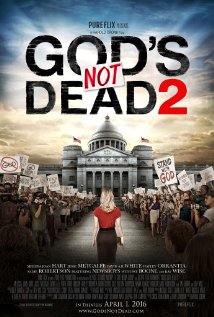| Elvis & Nixon | |
|---|---|
 |
by Peter J. O'Connell
Elvis and Nixon. Released: April 2016. Runtime: 86 mins. MPAA Rating: R for some language.
The King and the President, who was “not a crook”--so he said--have both gone down in history as great recording artists—of different kinds. Unfortunately, a recording of their meeting in the Oval Office doesn't exist, but now a movie, Elvis and Nixon, attempts to fill that gap in the historical record—of America and absurdity.
Elvis Presley, the “King of Rock-'n'-Roll,” and Richard Nixon, Vice President for eight years and President for five-and-a-half, did meet in the Oval Office, but at a time before Nixon had his notorious taping equipment installed. Their meeting, however, was immortalized in an iconic photograph, the most requested reproduction of any item in the National Archives.
According to Elvis and Nixon, directed by Liza Johnson from a screenplay by Joey Sagal, Hamala Sagal and Cary Elwes, the idea for the meeting comes to Elvis (Michael Shannon) as he is watching multiple TV screens in his Graceland mansion during Christmas week 1970. The screens are showing scenes of political protest and the harm done to young people by drugs. Elvis is so disgusted by what he sees that he takes one of his ever-present guns and shoots out some of the screens.
Presley was definitely familiar with drugs, to say the least, but apparently he did not consider them to be a problem for him, only for others, and he thought of himself as very patriotic. Therefore, he decided that he would go to Washington to meet the President, obtain a badge as “Federal Agent at Large,” and work undercover to combat drug abuse and anti-Americanism. He rounds up cronies—Jerry Schilling (Alex Pettyfer) and later Sonny West (Johnny Knoxville)--and heads for DC by way of LA.
Arriving in DC, Elvis proceeds to the White House gate at about 6:30 a.m. and seeks a meeting with the President. Flabbergasted guards refuse to let him in but are persuaded to convey to Nixon's aides a letter that Elvis has written for the President. Elvis then goes for a snack at a luncheonette. The predominately black clientele there mock him as a bad Elvis impersonator and eye his rings and gold chains covetously. Elvis, however, gains their respect when he displays his guns.
While Nixon's aides—Egil Krogh (Colin Hanks), Dwight Chapin (Evan Peters) and H.R. Haldeman (Tate Donovan)--debate what to do about Elvis' request, the superstar visits the head of the Bureau of Narcotics and Dangerous Drugs (Tracy Letts) and seeks to get that badge as Federal Agent at Large. The flustered Bureau head says that there is no such badge. Elvis, however, avers that he will get one from the President.
The White House aides conclude that a meeting of the President and Presley might help Nixon politically with Southerners, youth and women. A gruff Nixon (Kevin Spacey), cursing a blue streak, resists the idea but is eventually persuaded—after some prodding by his daughter, who wants an autographed photo of Elvis—to grant what is supposed to be just a brief “grip and grab” photo op.
Elvis is finally admitted to the Oval Office, after reluctantly giving up to security three of the guns that he always carries, but he is pleased that he is able to sneak through a derringer in his sock! He is also carrying a gun in a case as a present for the President, but has to give up the bullets for it.
Surprisingly, Nixon and Presley hit it off in their meeting. Nixon shoos his aides from the Oval Office, and the get-together becomes lengthy. Initially deferential, Elvis soon begins treating the President as an equal—berating the Beatles with him, displaying some karate moves, and explaining how his experience in movies with makeup and costumes will allow him to go undercover in such groups as SDS and the Black Panthers. The meeting ends with that iconic photo and Nixon's order to J. Edgar Hoover at the FBI to provide Elvis with his much-desired badge as Federal Agent at Large.
The movie is a delight. Liza Johnson's calm and economical direction provides no unnecessary underlining of the inherent absurdity of the historical reality. Michael Shannon's perceptive performance as Elvis also delights by being economical,
Amusingly, several times in the movie Shannon's Elvis is derided for being a bad Elvis impersonator. (One of those times is by an Elvis impersonator played by Joey Sagal, a co-screenwriter of the movie, who at one point was slated to play Elvis in the film himself!) Shannon's Elvis is a “bad impersonator” because Shannon knows that the Elvis of stage and screen, though a magnification of the off-stage/screen Elvis, is not the same as that Elvis. This understanding of character makes the familiar Elvis mannerisms and sayings, when they do from time to time occur, feel fresh and real.
Kevin Spacey's performance is actually “showier” than Shannon's. Mr. President's tics and twitches, paranoia and profanity are in full flower. That, too, is appropriate, for Nixon among his aides could display more of his “real self” than on the public stage, though, as we know, “tricky Dick” inadvertently revealed much there too over the years.
So—Elvis and Nixon, history and humor, see it!





